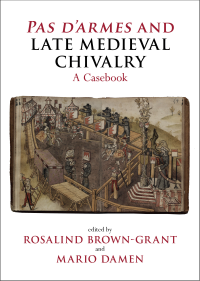Now accessible: our database on Pas d’armes
entrepreneurFor everybody accessible now! In order to make the data used in our book, website and virtual exhibition more accessible to both scholars and the general public, we have created an online database. It contains most of the details of all pas d’armes held between c.1420 and c.1520 (e.g. exact dates and locations, names of entrepreneurs and challengers, composition of teams, type of combat, theatrical scenario, ephemeral architecture, guests and spectators, etc.). The database can be searched by Events, i.e. all pas d’armes as they are normally called in the sources or secondary literature; Participants, i.e. all people involved in the pas d’armes as combatants, judges, spectators, guests, etc.; Locations, i.e. all towns, villages, castles and other places where the events took place; and Sources, i.e. all archival, manuscript and published sources which we used to create the database.
